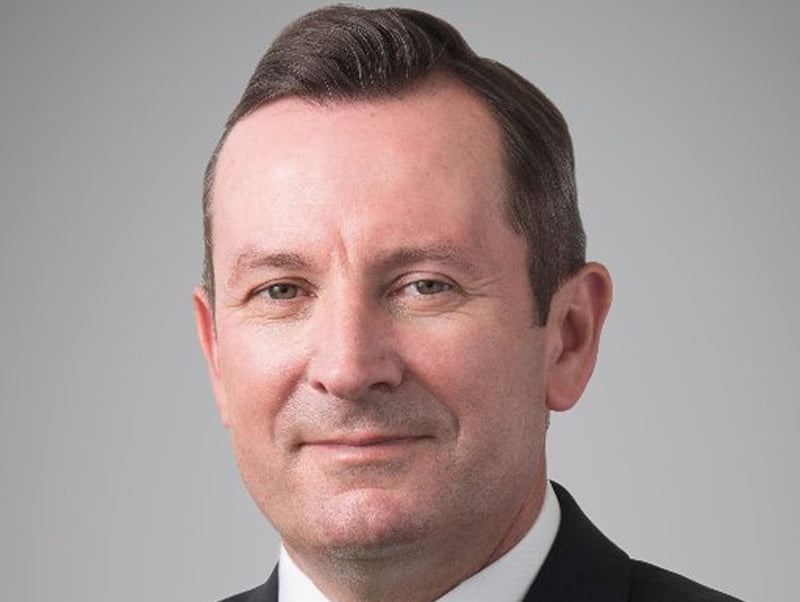Western Australia Premier Mark McGowan will release an updated state innovation policy by the end of the year, but has cautioned against any expectations of large new spending programs.
Mr McGowan said the innovation strategy was being drawn up in the context of the government priority to return a $3 billion budget deficit to surplus by 2021, suggesting new initiatives would be modest.
But there was room to move, and he said his Labor government would adopt “a more supportive approach to startups,” and also include programs to better facilitate collaborations between industry and the state’s five universities.

Speaking to InnovationAus.com in Shanghai on Sunday, Mr McGowan said his government would release a new innovation strategy by the end of the year, but added that “we don’t have the capacity to throw hundreds of millions of dollars at this, and we won’t be.”
Mr McGowan, who became Premier at the March election, has already put a heavy focus on attracting a greater share of Australian defence spending to Western Australia. He has also made diversifying the state’s trade relationship with China.
Within months of the election, Mr McGowan had created a new cabinet role of Minister for Defence Issues with the appointment of Paul Papalia. And then in August he appointed Rear Admiral Raydon Gates as the state’s first Defence Advocate.
Admiral Gates is a former warship captain and defence attache at the Australian Embassy in Washington. He is now a West Australian based in Canberra – and will be driving WA defence interests for the state government.
The government has also created a section within its Department of Jobs, Tourism, Science and Innovation called Defence West to directly engage in defence-related industry development issues.
Mr McGowan says Western Australia has the most competitive private shipbuilding industry in the country and that the state had been short-changed by the federal government in relation to defence contracts.
Without mentioning them by name, the premier had a sly dig at the Turnbull government’s senior West Australians – Finance Minister Mathias Cormann and Foreign Minister Julie Bishop – for not pursuing WA’s interests hard enough.
“Our effort is to leverage whatever we can against that $90 billion in [shipbuilding] contracts to Western Australia – whether its modules or high-tech or some of the research – and we’re doing our best to get access to that,” Mr McGowan said.
“South Australia has a team of federal MPs who have been just relentless advocates – including the minister (Christopher Pyne),” he said. “Western Australia has not had that at the federal level and our world-class ship-building industry didn’t get its fair share [as a result].”
Mr McGowan last week led a trade delegation to China, fulfilling a pledge made before the March election that China would be the first country he visited as Premier.
The delegation of 40 business leaders focused on the tourism and higher education sectors, and included three ministers – the education minister Suzanne Ellery, tourism minister Paul Papalia, and the minister for Asian engagement and trade, Bill Johnston.
The higher education and tourism sectors should be low-hanging fruit for trade improvement in China. Mr McGowan says the state will seek to leverage the “incredibly strong” business relationships it has with China to improve its paltry share of each.
Currently the number of tourists coming to Western Australia as a proportion of the national total is a meagre 3.7 per cent. And just 6 per cent of Chinese students studying in Australia are at Western Australia universities.
The Premier also wants to better leverage the 30-year-old sister-state relationship it enjoys with Zhejiang province, and was in the capital Hangzhou last week to talk-up the relationship, including with the Hangzhou-based tech giant Alibaba.
Western Australia exports about $62 billion worth of largely commodity product to China, while it imports about $5 billion.
“So without Western Australia, the nation’s trade position would be diabolical,” Mr McGowan said. “I don’t think I’m over-blowing this, but without the West Australian relationship with China, the national economy would be in serious trouble and would be in serious deficit.”
“You’ve got to remember that. It’s incredibly important that we retain a strong Western Australia-China connection, because otherwise our balance of trade would be dramatically worse.”
James Riley traveled to Shanghai as a guest of Alibaba. But the meeting with WA Premier Mark McGowan while he was there was a fortuitous happenstance.
Do you know more? Contact James Riley via Email.

